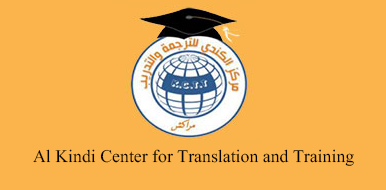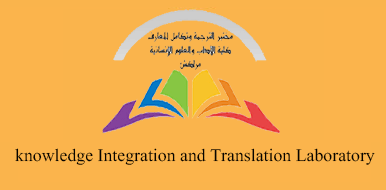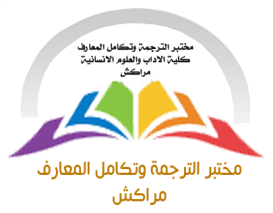
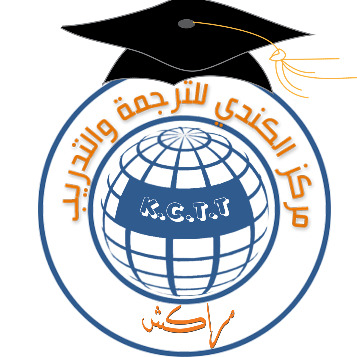
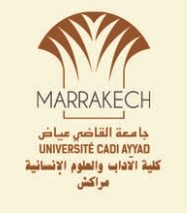
ینظم مركز الكِنْدِي للترجمة والتدریب بالتعاون مع
مختبر الترجمة وتكامل المعارف بجامعة القاضي عياض بمراكش
مؤتمرا دوليا في موضوع:
“تداولية المعنى في التراث اللغوي العربي: أسئلة التأصيل وآفاق التحديث”
تكريما لفضيلة الأستاذ الدكتور رشيد بلحبيب
يومي:17/ 18 أبريل 2019
Website: http://takc.org
ديباجة المؤتمر
تكمن قيمة التراث العلمي لأي أمة في وفرة التراكمات المعرفية لهذا التراث، وتميّز نتائجه وتفرّدها، واتساع ما يفتحه من آفاق علمية واعدة، وذلك على النحو الذي يتيح للأجيال اللاحقة إغناء الصرح العلمي التراثي بإضافات جديدة، واستدراكات موجهة، ومراجعات مثمرة، تنطلق من أسئلة الراهن العلمي المحكوم بتجدد الأسئلة والرؤى، غاية ذلك الإمداد والاستمداد، والإغناء والإثراء بين القديم والجديد.
من هذا المنطلق ليس يخفى على أحد ما راكمه القدماء العرب في شتى تخصصاتهم المعرفية من دراسات فكرية وأبحاث علمية يوازي حجمها النصي مستوى عمقها الفكري، وفي مقدمة هذه الأبحاث ما يتصل بعلوم اللغة سواء منها ما تعلق بعلوم الآلة أو بعلوم الغاية. وهي الأبحاث التي غذّاها احتفاء علماء العربية القدماء بالمعنى من حيث طبيعته، وأنماطه، وآليات استنباطه وسبل تداوله في النصوص اللغوية الأساسية المهيكلة لثقافتهم الدينية والدنيوية، كالقرآن الكريم، والحديث النبوي الشريف، وشتى الإنجازات الشعرية والنثرية العربية القديمة.
إن لموضوع تداولية المعنى في التراث اللغوي العربي تاريخا طويلا ينطوي على مظاهر متنوعة في التناول والمعالجة والخلفيات المعرفية والمنهجية الموجِّهة للبحث والمؤطرة له، ولا أدل على ذلك من اهتمام النحاة بالكلام وأثر المتكلم في إنشائه والمستمع في تلقيه، ووقوف الأصوليين في إطار فهمهم نصوص الكتاب والسنة على المعنى المنطوق والظاهر، والمعنى الصريح وغير الصريح، وانشغال المفسرين ببناء معاني محكم القرآن الكريم ومتشابهه استنادا إلى معطيات سياق المعنى القرآني ومساقه، كما اهتم شرّاح الشعر بالمعنى الشعري لغايات علمية وتعليمية متضافرة، وانكبّ البلاغيون على أنواع الخبر والإنشاء، ومعاني النحو في ضوء مقولات: “الصدق والكذب” و”مقتضى الحال” و”أحكام النظم”، وركز نقاد الشعر هم أيضا على المعنى الشعري الأصيل والمطروق أو المسروق، انطلاقا من علاقته بمقصدية صاحبه أو غرض القصيدة ووزنها.
والحقيقة اليوم أن غنى إنجازات التراث اللغوي العربي، يرجع إلى بقاء كثير من مباحثه منطويا على قضايا تتجاوز أسئلتها الواقع العلمي التراثي الذي أنتجها لاستشراف أجوبة الراهن العلمي الحديث. وهو ما يجعل موضوع المعنى ضمن هذه المباحث اللغوية التراثية مجالا بكرا يستجيب للمساءلة وإعادة القراءة من منطلقات بعض التخصصات العلمية الحديثة المعنية بموضوع المعنى، وفي مقدمتها التداولية التي تمثل بحق محطة أساسية وإبدالا معرفيا حاسما في تناول موضوع المعنى في التخاطب اللغوي الإنساني.
فقد أولى أعلام التداولية المؤسسون والموسِّعون، أمثال جون أوستن، وجون سورل،
وبول كرايس، ودان سبيربر، ودييردر ويلسون، اهتماما علميا غير مسبوق بالمعنى وقضاياه التواصلية الأساسية؛ وهو ما انتهى بهم إلى تشريح علمي دقيق للمرتكزات الجوهرية التي يقوم عليها تداول المعنى في اللغة الطبيعية عامة، ومنها المتكلم، والمستمع، والقصد، والسياق، والملاءمة، والمحيط المعرفي، والاقتضاء، وغيرها من المفاهيم التداولية الإجرائية التي أفضت بمختلف أجيال التداوليين إلى بلورة مباحث تداولية كونية غاية في العمق والثراء، مثل الفعل الكلامي، ومعنى المتكلم، ومعنى الجملة، والاستلزام الحواري، وغيرها من المباحث التي سبق أن عرض لها اللغويون العرب القدماء هم أيضا، وذلك وفق جهاز مصطلحي خاص بهم، ومنطلقات وغايات مغايرة لتلك التي حركت البحث التداولي الحديث.
ولكل ما سبق، يدعو مؤتمر “تداولية المعنى في التراث اللغوي العربي، أسئلة التأصيل وآفاق التحديث” الباحثين والمهتمين بقضايا المعنى وأسئلته لمناقشة الأبعاد التداولية للمعنى في التراث اللغوي العربي، وذلك انطلاقا من بحوث نظرية أو تطبيقية رصينة تحكمها محاور علمية من قبيل:
- طبيعة المفاهيم والمصطلحات التداولية المفاتيح في التراث اللغوي العربي؛
- القضايا التداولية الأساسية في التراث اللغوي العربي؛
- النماذج التداولية المتميزة في التراث اللغوي العربي؛
- مرجعيات تداولية المعنى في التراث اللغوي العربي؛
- التراث اللغوي العربي والتداولية الحديثة، أي علاقة؟
- تداولية المعنى في الدراسات النحوية العربية التراثية؛
- تداولية المعني في تفاسير القرآن الكريم؛
- تداولية المعنى في شروح الحديث النبوي الشريف؛
- تداولية المعنى في الدراسات الأصولية العربية التراثية؛
- تداولية المعنى في شروح الشعر العربي؛
- تداولية المعنى في الدراسات النقدية العربية التراثية؛
- تداولية المعنى في الدراسات البلاغية العربية التراثية؛
- تداولية المعنى وإشكالات المعطى الصوتي في التراث اللغوي العربي.
- تداولية المعنى وإشكالات التأويل التداولي في التراث اللغوي العربي؛
- تداولية المعنى وإشكالات التحاجّ في التراث اللغوي العربي؛
- آفاق الاجتهاد التداولي في التراث اللغوي العربي في ضوء الأبحاث والدراسات اللسانية والتداولية الحديثة.
- جهود المعاصرين في قراءة تداولية المعنى في التراث اللغوي العربي.
- شروط عامة للبحوث:
- أن يتسم البحث بالمنهجية العلمية ومواصفات البحث العلمي الرصين.
- يتم تبويب البحث على النحو الآتي:
- أ- عنوان المقال: ويضم: اسم المؤلفواسم الجامعة أو مؤسسة الانتساب.
- ب- ملخص في حدود 200 كلمة باللغتين العربية والإنجليزية.
- ت- ضرورة وضع الكلمات المفاتيح بعد الملخص.
- أن تتراوح صفحات البحث ما بين10 و 15 صفحة، مقاس(A4) ، وأن يكون خط المتن والعناوين(Times New Roman) بمقاس14، و (Times New Roman) بمقاس(12) في الهوامش، مع مراعاة مقاس واحد ونصف (1,5) بين السطور.
- ترقيم هوامش البحث في أسفل الصفحة مع الاكتفاء بكتابة اسم الكتاب والصفحة فقط، على هذا النحو:
- – علم الأصوات وتكامل المعارف: 123.
- تكتب العناوين الرئيسية بحجم الخط 18، والفرعية بحجم 16، مع جعل الخط بارزا.
- تحول الرسوم والأشكال الهندسية إلى صور، حفاظا على شكلها الأصلي.
- ترتيب قائمة المصـادر والمراجع في آخر البحث باعتماد عناوين المؤلفات، دون إغفال اسم المؤلف ورقم الطبعة ودار النشر ومكان النشر، وكذلك سنة النشر.
- مواعيد مهمة:
- آخر أجل للتوصل بملخص البحث، واستمارة المشاركة، وموجزالسيرة الذاتية:30 يوليوز 2018؛ وستقوم لجنة التحكيم بالرد على الملخصات قبولا أو رفضا فور التوصل بها.
- آخر أجل للتوصل بالبحث كاملا:15 نونبر 2018.
- سيتم الرد على المقالات قبولا أو تعديلا أو اعتذارا قبل30 دجنبر 2018.
- تاريخ انعقاد المؤتمر: 17- 18 أبريل 2019
- مكان انعقاد المؤتمر: كلية الآداب والعلوم الإنسانية- مراكش المملكة المغربية.
- تبعث الملخصات والاستمارات والبحوث المقترحة للمشاركة إلى البريد الالكتروني:
- تطبع دار عالم الكتب الحديث أعمال المؤتمر قبل انعقاده.
- رسوم المؤتمر:
- رسوم المؤتمر للمشاركين بورقة بحثية توافق عليها اللجنة العلمية 450 دولار أو ما يعادلها. وتغطي هذه الرسوم خدمات المؤتمر (حقيبة المؤتمر، كتاب المؤتمر، شهادة المشاركة) ونفقةَ الإقامة ثلاث ليال في فندق مصنف 4 نجوم، والتغذية والتنقل طيلة أيام المؤتمر.
- لا تسلم شهادة الحضور إلا لمن حصل مسبقا على الموافقة.
- يتحمل المشارك نفقات السفر ذهاباً وإياباً.
أعضاء اللجنة العلمية:
| · د. أحمد بريسول– المغرب | · د. أحمد كروم – المغرب |
| · د.عبد الرحمن بودرع– المغرب | · د. حسن المودن– المغرب |
| · دة. سعاد الكتبية– المغرب | · د. عبد العالي مجدوب– المغرب |
| · د. عبد العزيز أيت بها – المغرب | · د.عبد القادر بقشى– المغرب |
| · د. عبد القادر مراح – المغرب | · د. عبد الله الرشدي– المغرب |
| · د. عبد الواحد بن ياسر– المغرب | · د. عبد الواحد المرابط – المغرب |
| · ذة. فاطمة الترسيم– المغرب | · د. الحسن بواجلابن– المغرب |
| · د. محمد فتح الله مصباح– المغرب | · د. محمد مسعدي– المغرب |
| · د. مولاي مصطفى أبو حازم– المغرب | · د.عبد الرحيم بودلال– المغرب |
| د. فؤاد بوعلي- المغرب | |
منسقو المؤتمر:
د. إبراهيم أسيكار– المغرب د. رشيد أعرضي-المغرب
د. نور الدين حنيني- المغرب د. نور الدين عزمي- المغرب
الإشراف العام:
د. عبد الحميد زاهيد: مدير مختبر الترجمة وتكامل المعارف- مراكش
د. حسن درير: مدير مركز الكندي للترجمة والتدريب- مراكش
- استمارة المشاركة + السيرة الذاتية
| الاسم الكامل | |
| الهاتف الشخصي | |
| البريد الإلكتروني | |
| الدرجة العلمية والتخصص الدقيق | |
| مكان العمل | |
| محور المشاركة | |
| عنوان المداخلة | |
| ملخص الموضوع | |
| موجز السيرة الذاتية | |
Al Kindi Centre for Translation and Training in collaboration with The Knowledge Integration and Translation Laboratory (Cadi Ayyad University, Marrakech) organizesan international conference under the theme:
Pragmatic Meaning in theArabic Linguistic Heritage:
Rooting Issues and Modernization Horizons
In honor of Dr.RachidBelhabib
Date of Conference:17-18 April 2019
Preamble:
The true value of the scientific heritage of any nation rests upon the affluence of the cognitive accumulation of this heritage; alongside with its unique and distinguished outcomes, and the scope of the potentially promising scientific horizons that create a favourable environment for the coming generations to enrich this scientific heritage by means of additional contributions, adjustments and corrections.
In this respect, no one can deny the amount and the quality of knowledge that the ancient Arabs have accumulated in various cognitive specialties, notably inthe intellectual studies and scientific researches. The foremost of these researches are those related to linguistics, researches that have been nurtured by the focus of the ancient Arab scholars on meaning in terms of its nature, patterns, extrapolation mechanisms, and the way it is used in the essential texts that structure and built up their religious and worldly culture, such as the Holy Quran, the hadith (the prophetic tradition) as well as the various poetic and prose like accomplishments related to Arabic.
The topic of the pragmatic meaning in the Arabic linguistic heritage has a very long history and involves a wide range of manifestations in terms of approach, treatment as well as the cognitive and methodological backgrounds that are basically research oriented. This is evident in the grammarians’ interest in speech and the influence of the speaker on its production, as well as the receiver’s influence on its reception; the epistemologists’ understanding of the explicit and implicit meaning of the texts ofthe Holy Quran and Sunnah;and the exegetes concern with building the meanings of the fundamental (muhkam) and the allegorical (mutashabih) verses of the Holy Quran on the basis of its contextual meaning.In the same way, poetry commentators devoted attention to the poetic sense for concerted scientific and educational purposes. The rhetoricians, in their turn, devoted themselvesto different types of themes and rhemes, and to the meanings of grammar in the light of categories like: “Honesty and falsehood”, “appropriateness” and “rules of composition”. Likewise, poetry critics focused on the original and plagiarized poetic meaning,based on its relation to the poet’s aim or the rhymes of the poem.
Today, the truth is that the wealth of achievements of the Arabic linguistic heritage resides in the fact that many of its topics address issues whose questions go beyond the traditional scientific reality that produced them to explore the answers of modern science. This is what makes the issue of meaning within these traditional disciplines a pristinefield that is particularly amenable to re-reading from the premises of some modern scientific disciplines concerned with the subject of meaning, pragmatics in particular, which truly represents a fundamental station in dealing with the subject of meaning in human communication.
Scholars who have founded and expanded the field of pragmatics such as John Austin, JohnSearle, Paul Grice, Dan Sperber, and Deirdre Wilson gave unprecedented scientific attention to meaning and its basic communicative issues. Thisled to a thorough scientific anatomy of the fundamental tenets on which the exchange of meaning is based on within natural language in general. This includes the speaker, listener, purpose, context, relevance, cognitive environment, entailment and other procedural pragmatic concepts that have led the different generations of pragmatics scholars to conceptualize universal pragmatic topics such asspeech act, speaker’s meaning, sentence meaning, conversational implicature, and other fields of research that the ancient Arab linguists had already worked on using their own terminology,theoretical frames and goals.
Based on all what has been mentioned above, the conference “Pragmatic Meaning in the Arabic Linguistic Heritage: Rooting Issues and Modernization Horizons” invites researchers and interested people to discuss the theoretical and applied pragmatic dimensions of meaning in the Arabic Linguistic Heritage.
The conference research axes include, but are not limited to:
- The nature of the key concepts and terms of pragmatics in the Arabic linguistic heritage
- Fundamental Pragmatic Issues in the Arabic linguistic heritage.
- Special Pragmatic Models in the Arabic linguistic heritage.
- Theoretical frameworks of the pragmatic meaning in the Arabic linguistic heritage.
- Relationships between the Arabic Linguistic Heritage and Modern Pragmatics
- Pragmatic meaning in the Arabic grammatical tradition
- Pragmatic meaning in the Interpretations (Tafaseer) of the Holy Quran
- Pragmatic meaning in the Narrations of the Hadith of the Prophet (PBUH)
- Pragmatic meaning in the heritage of the Arabic epistemological studies.
- Pragmatic meaning in the explanations of Arabic poetry
- Pragmatic meaning in the traditional Arabic Critical Studies.
- Pragmatic meaning in the traditional Arabic Rhetorical Studies.
- Pragmatic meaning and the issues of sound in the Arabic linguistic heritage.
- Pragmatic Meaning and the issues of pragmatic interpretation in the Arabic linguistic heritage.
- Pragmatic meaning and the issues of argumentation in the Arab linguistic heritage.
- Prospects for innovation in the Arabic linguistic heritage based on modern research and pragmatic linguistic studies.
- Efforts of contemporary scholars in reading the pragmatic meaning in the Arabic linguistic heritage.
Important dates ▪ Deadline for proposal submission: July 30,2018.▪ Submission of final papers:November 15, 2018.▪ Notification of acceptance after blind reviewing: December 30, 2018. ▪ Conference date: 17-18 April 2019▪ Conference venue: Faculty of Arts and Humanities, Marrakech, Kingdom of Morocco.▪ Abstracts and participation formsshould be sent to: alkindiconference07@gmail.com▪ Conference proceedings are to be published before the conference.▪ APA reference style required. Participation fees ▪ $ 450 or equivalent (conference documents, participation certificate, accommodation, meals and coffee breaks are included)▪ Travel expenses to be covered by participants Conference coordinators Dr. Ibrahim Assikar – MoroccoDr. RachidAaradi – MoroccoDr. Noreddine Hanini – MoroccoDr. NoureddineAzmi – Morocco Scientific committee
| · Dr. Abdelaziz Ait Baha (Morocco) | · Dr. Abdelali Majdoub (Morocco) |
| · Dr. Abdelkader Marah (Morocco) | · Dr. Abdelkader Bakcha(Morocco) |
| · Dr.Abdelouahed Lamrabet(Morocco) | · Dr. Abdellah Rachdi(Morocco) |
| · Dr. Abderrahim Boudlal(Morocco) | · Dr. Abdelwahed BnouYassir (Morocco) |
| · Dr. Ahmed Berrissoul(Morocco) | · Dr. Abderrahmane Boudraa(Morocco) |
| · Dr. Fatma Trassim (Morocco) | · Dr. Ahmed Kerroum(Morocco) |
| · Dr.Hassan Bouijelabn (Morocco) | · Dr. Fouad Bouali (Morocco) |
| · Dr. Mohamed Msaadi(Morocco) | · Dr. Hassan El Moudden(Morocco) |
| · Dr. Souad El koutoubia (Morocco) | · Dr. Mohamed Fathallah Misbah (Morocco) |
| · Dr. My Mustapha Abouhazim (Morocco) | |
Overall supervision
| Dr. Abdelhamid ZAHID | Knowledge Integration and Translation Laboratory – Morocco |
| Dr. Hassane DARIR | Al Kindi Centre for Translation and Training– Morocco |
Participation Form
| Full name | |
| Phone number | |
| Position and academic discipline | |
| Institution | |
| Participation axis | |
| Presentationtitle | |
| Abstract | |
| Bio data
|
|
Le Centre Al Kindi de Traduction et de Formation
En collaboration avec le Laboratoire Traduction et Interdisciplinarité
Faculté des Lettres et des Sciences Humaines – Marrakech
Organise un colloque international sur le thème :
« Pragmatique du sens dans le patrimoine langagier arabe : questions d’origine et perspectives de modernisation »
En hommage au Professeur Rachid Belhabib
Les 17 et 18 avril 2019
Site web : http://takc.org
Argumentaire
La valeur du patrimoine scientifique d’une nation réside dans l’abondance des acquis cognitifs sur lesquels est bâti ce patrimoine. Elle tient aussi dans la singularité de ses résultats et l’élargissement des perspectives prometteuses qu’il ouvre de sorte à permettre aux générations futures d’entreprendre de nouveaux ajouts, d’importantes révisions et des réajustements orientés. En fait, l’actualité scientifique nécessite le renouvèlement des questions et des visions, de même que l’enrichissement dans le passage de l’ancien au nouveau.
Sur ces bases, les Arabes anciens, de par leur production, avaient mené, dans divers champs disciplinaires, des études et recherches qui se valaient autant sur le plan de leur contenu textuel que sur celui de leur contenu idéel. Au rang de ces recherches figurent en bonne place celles qui se rattachent aux sciences du langage. Plus particulièrement, ils ont donné une place privilégiée à l’étude du sens au niveau de ses dimensions sémantiques et pragmatiques, dans des énoncés de base qui structurent leur vie religieuse et leur vie temporelle, à savoir le Coran et le hadith, mais aussi la poésie et la prose arabes anciennes.
La pragmatique du sens dans le patrimoine langagier arabe fait l’objet de ce colloque. Revisiter ce thème revient à aborder les multiples facettes qu’il recouvre et à explorer les références cognitives et méthodologiques dont il est imprégné. Par exemple, les grammairiens arabes, si on se fonde sur certaines de leurs analyses, ont porté un intérêt à la parole, à la production langagière du locuteur et à la réception de son interlocuteur. Pour comprendre les textes du Coran et de la sunna, les finalistes s’en sont tenus aux sens propre et figuré et aux sens dénoté et connoté. Les exégètes, pour leur part, se sont intéressés aux versets avec une signification sans équivoque et ceux avec de multiples interprétations, en se basant sur le contexte du sens coranique. Les commentateurs de la poésie se sont attachés au sens poétique à des fins scientifiques et didactiques. Les rhétoriciens se sont penchés sur les énoncés de type « constatif » et les énoncés de type « performatif », à la lumière de la dichotomie vrai/fauxet du contexte de la situation. Quant aux critiques de la poésie, ils ont focalisé leur attention sur le sens poétique originel à partir de l’intention du poète, de la finalité de la poésie et de sa métrique.
La richesse du patrimoine langagier arabe provient du fait que de nombreuses questions qu’il soulève restent porteuses de problématiques qui vont au-delà de la réalité dans laquelle elles sont générées, pour esquisser à l’avance des réponses qui conviennent à l’actualité scientifique contemporaine. Ce qui rend le thème du sens dans ce type de recherche un domaine fécond qui suscite réflexion et relecture dans le cadre de champs disciplinaires modernes qui prennent intérêt au sens, tels que la pragmatique qui étudie justement la question du sens en situation de conversation.
A partir des théories pragmatiques, parmi lesquelles les travaux des philosophes du langage John Austin, John Searle et Paul Grice, ainsi que le modèle cognitiviste de Dan Sperber et de Deirdre Wilson, on a vu se développer le sens en tant qu’objet d’étude. Autrement dit, la pragmatique s’est vue prendre en compte les préoccupations inhérentes au sens. Ainsi, pour étudier la pragmatique du sens dans le langage, ces pragmaticiens ont décortiqué des notions intéressantes telles que le locuteur, l’interlocuteur, l’intentionnalité, le contexte, la pertinence, l’environnement cognitif, l’inférence, etc. Ce qui a entraîné la cristallisation de concepts pragmatiques comme « acte de langage », « le sens du locuteur », « le sens de la phrase », « la présupposition », etc. Il est à noter ici que les linguistes arabes anciens ont abordé ces concepts, mais sous des appellations différentes.
Axes de recherche
- La nature des concepts et des termes pragmatiques dans le patrimoine langagier arabe.
- Les questions pragmatiques de base dans le patrimoine langagier arabe.
- De quelques exemples pragmatiques dans le patrimoine langagier arabe.
- Les références de la pragmatique du sens dans le patrimoine langagier arabe.
- La relation entre le patrimoine langagier arabe et la pragmatique moderne.
- La pragmatique du sens dans les études syntaxiques arabes anciennes.
- La pragmatique du sens dans les exégèses du Coran.
- La pragmatique du sens dans les commentaires du hadith.
- La pragmatique du sens dans les études finalistes arabes anciennes.
- La pragmatique du sens dans les commentaires de la poésie arabe.
- La pragmatique du sens dans les études critiques arabes anciennes.
- La pragmatique du sens dans les études rhétoriques arabes anciennes.
- La pragmatique du sens et la phonétique dans le patrimoine langagier arabe.
- La pragmatique du sens et l’interprétation pragmatique dans le patrimoine langagier arabe.
- La pragmatique du sens et l’argumentation dans le patrimoine langagier arabe.
- Les perspectives de la modernisation de la pragmatique du sens dans le patrimoine langagier arabe.
Dates importantes à retenir
- Date limite de remise du résumé (200 mots), du formulaire de participation et d’une notice bio-bibliographique : 30 juillet 2018
- Remise des textes définitifs : 15 novembre 2018
- Notification d’acceptation : 30décembre 2018
- Date du colloque : 17 et 18 avril 2019
- Lieu de tenue du colloque : Faculté des Lettres et des Sciences Humaines, Marrakech, Royaume du Maroc.
- Les résumés, les formulaires de participation et les communications doivent être envoyés à l’adresse : alkindiconference07@gmail.com
- Les actes de colloque seront publiés avant le colloque.
Frais du colloque
- 450$ (ou équivalent) incluant les services du colloque : les documents du colloque, les actes de colloque, l’attestation de participation, l’hébergement, les repas et le transport durant la période du colloque.
- Les frais de voyage sont à la charge des participants.
Comité scientifique
| · Dr. Abdelaziz Ait Baha (Maroc) | · Dr. AbdelaliMajdoub (Maroc) |
| · Dr. AbdellahRachdi(Maroc) | · Dr. AbdelkaderBakchi(Maroc) |
| · Dr. AbdelwahedBnouYassir (Maroc) | · Dr.AbdelouahedLamrabet(Maroc) |
| · Dr. AbderrahmaneBoudraa(Maroc) | · Dr. AbderrahimBoudlal(Maroc) |
| · Dr. Ahmed Kerroum(Maroc) | · Dr. Ahmed Berrissoul(Maroc) |
| · Dr. Fouad Bouali (Maroc) | · Dr. FatmaTrassim (Maroc) |
| · Dr. Hassan El Moudden(Maroc) | · Dr.Hassan Bouijelabn (Maroc) |
| · Dr. Mohamed FathallahMisbah (Maroc) | · Dr. Mohamed Msaadi(Maroc) |
| · Dr. My Mustapha Abouhazim (Maroc) | · Dr. Souad El koutoubia(Maroc) |
Coordinateurs du colloque
Brahim Assikar, Rachid Aaradi, Noreddine Hanini et Noureddine Azmi.
Supervision du colloque
Abdelhamid Zahid (Laboratoire Traduction et Interdisciplinarité)
HassaneDarir (Centre Al Kindi de traduction et de formation)
Formulaire de participation
| Nom et prénom | |
| Téléphone personnel | |
| Fonction et spécialité | |
| Institution | |
| Axe de participation | |
| Intitulé de la communication | |
| Résumé | |
| Notice bio-bibliographique | |
